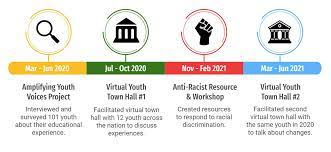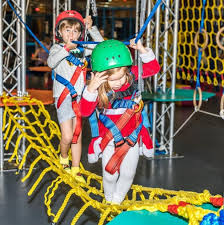
Empowering the Leaders of Tomorrow: Unlocking Potential Through Youth Engagement Activities
Youth Engagement Activities: Empowering the Leaders of Tomorrow
Engaging young people in activities that promote their personal growth, leadership skills, and community involvement is crucial for nurturing the leaders of tomorrow. Youth engagement activities provide a platform for young individuals to develop their talents, explore their interests, and make a positive impact on society. In this article, we will explore the importance of youth engagement activities and highlight some effective ways to empower our youth.
Why are youth engagement activities important?
Personal Development: Youth engagement activities offer young people opportunities to discover their strengths, build self-confidence, and develop essential life skills. Whether it’s through sports, arts, or volunteering initiatives, these activities help them grow as individuals and prepare them for future challenges.
Leadership Skills: Engaging in activities that require teamwork and collaboration helps young people hone their leadership abilities. By taking on responsibilities within clubs, organizations, or community projects, they learn how to communicate effectively, make decisions, and motivate others – skills that are vital for success in any field.
Social Connections: Youth engagement activities provide a platform for young individuals to connect with like-minded peers who share similar interests and passions. This fosters a sense of belonging and encourages social interaction, helping them build friendships that can last a lifetime.
Civic Participation: By involving young people in community-based projects or initiatives focused on social issues they care about, youth engagement activities encourage active citizenship from an early age. This instills a sense of responsibility towards their communities and empowers them to contribute positively to society.
Effective youth engagement activities:
Mentorship Programs: Pairing young people with experienced mentors who can guide them in specific areas of interest is an effective way to foster personal growth and skill development. Mentors can provide valuable insights, advice, and support as young individuals navigate their chosen paths.
Sports Clubs/Teams: Engaging in sports not only promotes physical well-being but also teaches important life lessons such as teamwork, discipline, and perseverance. Sports clubs and teams provide a structured environment where young people can develop their athletic abilities while building character.
Arts and Culture Programs: Encouraging participation in artistic activities like music, dance, theatre, or visual arts nurtures creativity and self-expression. These programs provide platforms for young artists to showcase their talents, boost their confidence, and explore different art forms.
Volunteering Opportunities: Engaging in community service projects allows young people to make a meaningful impact while developing empathy and compassion. Volunteering exposes them to diverse social issues and encourages them to actively contribute towards positive change.
Youth-led Initiatives: Empowering young individuals to take the lead in planning and executing projects or events gives them a sense of ownership and responsibility. This fosters leadership skills, decision-making abilities, and the confidence to turn their ideas into reality.
In conclusion, youth engagement activities play a vital role in shaping the leaders of tomorrow by promoting personal development, fostering leadership skills, encouraging social connections, and instilling a sense of civic responsibility. By providing diverse opportunities for young people to engage with their communities and pursue their passions, we empower them to become active contributors to society. Let’s invest in our youth today for a brighter future tomorrow!
Frequently Asked Questions about Youth Engagement Activities
- How can we engage the youth in the community?
- What is a youth engagement plan?
- How can you promote youth engagement?
- What are the examples of youth involvement?
How can we engage the youth in the community?
Engaging the youth in the community is essential for their personal development and for building a strong and vibrant society. Here are some effective ways to engage the youth in the community:
- Create Youth Advisory Committees: Establishing youth advisory committees allows young people to have a voice in decision-making processes that directly affect their lives and communities. These committees can provide input on issues such as education, recreation, and community development.
- Encourage Volunteerism: Promote volunteer opportunities tailored to young people’s interests and skills. Collaborate with local organizations or create youth-led initiatives that address community needs, such as environmental conservation, homelessness, or supporting marginalized groups.
- Offer Leadership Development Programs: Provide leadership training programs that empower young individuals to take on active roles within the community. These programs can include workshops on public speaking, project management, teamwork, and problem-solving.
- Support Youth Entrepreneurship: Encourage young people to develop their entrepreneurial skills by offering mentorship programs or workshops focused on business planning, marketing, and financial management. This helps them become active contributors to the local economy.
- Foster Arts and Culture Initiatives: Promote artistic expression among young people by organizing events such as art exhibitions, music festivals, or drama performances. Provide platforms for them to showcase their talents and collaborate with local artists.
- Create Safe Spaces: Establish safe spaces where young people can gather, socialize, and express themselves freely without judgment or discrimination. These spaces can be community centers, youth clubs, or designated areas within existing facilities.
- Embrace Technology: Utilize technology platforms to engage with young people effectively. Develop interactive websites or mobile applications that provide information about community events, resources for personal development, or forums for discussion.
- Collaborate with Schools and Colleges: Partner with educational institutions to integrate community engagement into their curriculum. Offer internships or apprenticeships that provide real-world experiences while addressing community needs.
- Organize Sports and Recreation Programs: Encourage participation in sports leagues, fitness activities, or outdoor adventures. These programs promote physical well-being, teamwork, and healthy competition while fostering a sense of community.
- Listen and Empower: Actively listen to the ideas, concerns, and aspirations of young people. Provide opportunities for them to lead and take ownership of community projects. Empower them by trusting their abilities and supporting their initiatives.
Remember, engaging the youth requires ongoing commitment and collaboration from community leaders, organizations, parents, and mentors. By valuing their input and creating inclusive spaces for them to thrive, we can empower the youth to become active participants in shaping a better future for themselves and their communities.
What is a youth engagement plan?
A youth engagement plan is a strategic framework or roadmap that outlines specific goals, objectives, and activities aimed at involving young people in decision-making processes, programs, and initiatives. It is a structured approach to actively engage and empower young individuals, ensuring their voices are heard and their perspectives are considered.
A well-designed youth engagement plan typically includes the following elements:
- Objectives: Clearly defined goals that outline what the plan aims to achieve. These objectives should be specific, measurable, achievable, relevant, and time-bound (SMART).
- Target Audience: Identifying the specific group(s) of young people who will be involved in the engagement activities. This could include a particular age range, demographic characteristics, or individuals with specific interests or needs.
- Engagement Methods: Determining the most effective ways to engage with young people based on their preferences and availability. This could include surveys, focus groups, workshops, online platforms, social media campaigns, or other interactive methods.
- Communication Strategies: Developing a comprehensive communication plan to reach out to young people and inform them about opportunities for engagement. This may involve utilizing various channels such as social media platforms, email newsletters, community events, or school collaborations.
- Collaboration with Stakeholders: Identifying key stakeholders such as community organizations, schools, parents/guardians, local authorities, or youth-led groups who can support and contribute to the success of the engagement plan.
- Training and Support: Providing necessary training and support for both young participants and adult facilitators involved in the engagement activities. This may include workshops on leadership skills development or capacity-building sessions on effective communication and project management.
- Actionable Activities: Designing specific activities that align with the objectives of the plan. These activities could range from focus group discussions on policy development to youth-led projects addressing community issues or even participation in decision-making processes within organizations.
- Evaluation and Feedback: Establishing mechanisms to assess the effectiveness of the engagement plan and gather feedback from young participants. This feedback can help refine future engagement strategies and ensure continuous improvement.
- Sustainability: Considering long-term sustainability by exploring ways to institutionalize youth engagement within organizations or communities beyond the initial plan. This may involve creating dedicated roles, establishing youth advisory boards, or developing ongoing youth-led initiatives.
By developing a comprehensive youth engagement plan, organizations, institutions, and communities can create meaningful opportunities for young people to contribute their ideas, skills, and perspectives. Such plans help foster a sense of ownership among young individuals and empower them to become active agents of change in their communities.
How can you promote youth engagement?
Promoting youth engagement is essential for empowering young individuals and creating a positive impact on their lives and communities. Here are some effective ways to promote youth engagement:
- Create Safe Spaces: Establish safe and inclusive spaces where young people feel comfortable expressing themselves, sharing their ideas, and engaging in meaningful discussions. These spaces can be physical locations like community centers or virtual platforms such as online forums or social media groups.
- Listen and Value Their Voices: Actively listen to young people’s opinions, concerns, and ideas. Encourage them to participate in decision-making processes that affect their lives, whether it’s within schools, local organizations, or community initiatives. Show that their voices matter by incorporating their input into plans and actions.
- Provide Mentoring Opportunities: Connect young individuals with experienced mentors who can provide guidance, support, and inspiration. Mentors can help them navigate challenges, explore career paths, develop skills, and set goals. Mentorship programs can be formal or informal arrangements based on shared interests or professional fields.
- Offer Skill Development Programs: Organize workshops, training sessions, or courses that focus on developing various skills such as leadership, communication, teamwork, problem-solving, and critical thinking. These programs empower young people with the tools they need to succeed in different areas of life.
- Engage in Community Service: Encourage youth participation in volunteer projects that address social issues within their communities. By actively participating in community service initiatives, young individuals learn about empathy, compassion, and the importance of giving back.
- Foster Collaboration: Promote collaboration among young people by organizing group activities like team-building exercises or group projects where they can work together towards a common goal. This cultivates teamwork skills while fostering a sense of belonging and camaraderie among participants.
- Utilize Technology: Leverage technology platforms to engage with young people effectively. Utilize social media channels to share information about upcoming events or opportunities, create online forums for discussions, and use digital tools to encourage their participation in surveys or feedback mechanisms.
- Support Youth-led Initiatives: Encourage young individuals to take the lead in planning and implementing their own projects or events. Provide them with the necessary resources, guidance, and mentorship to turn their ideas into reality. Supporting youth-led initiatives empowers them to take ownership of their actions and builds confidence in their abilities.
- Recognize and Celebrate Achievements: Acknowledge and celebrate the achievements of young people in various areas such as academics, sports, arts, community service, or leadership. Recognizing their efforts boosts their self-esteem and motivates them to continue engaging actively.
- Collaborate with Schools and Organizations: Partner with educational institutions, youth organizations, or local community groups to create joint initiatives that promote youth engagement. This collaboration allows for a wider reach and access to resources while fostering a supportive network for young individuals.
By implementing these strategies, we can promote youth engagement effectively and provide young people with the opportunities they need to grow, thrive, and make a positive impact on society.
What are the examples of youth involvement?
There are numerous examples of youth involvement that empower young individuals to make a difference in their communities. Here are a few examples:
- Youth Councils: Many cities and organizations have youth councils, where young people can voice their opinions, contribute ideas, and participate in decision-making processes that affect them directly. These councils provide a platform for youth to engage with local government and have their voices heard.
- Community Service Projects: Volunteering is an excellent way for young people to get involved and give back to their communities. They can participate in activities such as cleaning up parks, organizing food drives, tutoring younger students, or assisting at local shelters. These projects allow young individuals to make a positive impact while developing valuable skills.
- Youth-Led Campaigns: Young people often lead campaigns on various social issues that they are passionate about. Whether it’s advocating for environmental sustainability, raising awareness about mental health, or promoting equality and inclusivity, these campaigns provide a platform for youth to raise their voices and drive change.
- School Clubs and Organizations: Schools offer a range of clubs and organizations that allow students to explore their interests and develop leadership skills. Whether it’s joining the student council, participating in debate clubs, or starting a community service club, these activities foster engagement and encourage teamwork among peers.
- Youth Entrepreneurship: Some young individuals take initiative by starting their own businesses or social enterprises. Through entrepreneurship programs or mentorship opportunities, they learn valuable skills such as financial management, marketing, problem-solving, and leadership.
- Youth-Led Media Platforms: With the rise of social media platforms and online content creation, many young people are using these platforms to raise awareness about important issues or share their perspectives on various topics. They create blogs, podcasts, YouTube channels, or social media campaigns that amplify their voices and engage with wider audiences.
- Peer Education Programs: In schools or community organizations, peer education programs allow young people to educate their peers on important topics such as mental health, substance abuse prevention, or sexual health. This approach encourages open dialogue and creates a safe space for discussing sensitive issues.
These examples showcase the diverse ways in which young individuals can get involved and make a positive impact in their communities. By providing opportunities for youth involvement, we empower them to become active contributors and leaders in shaping a better future.



